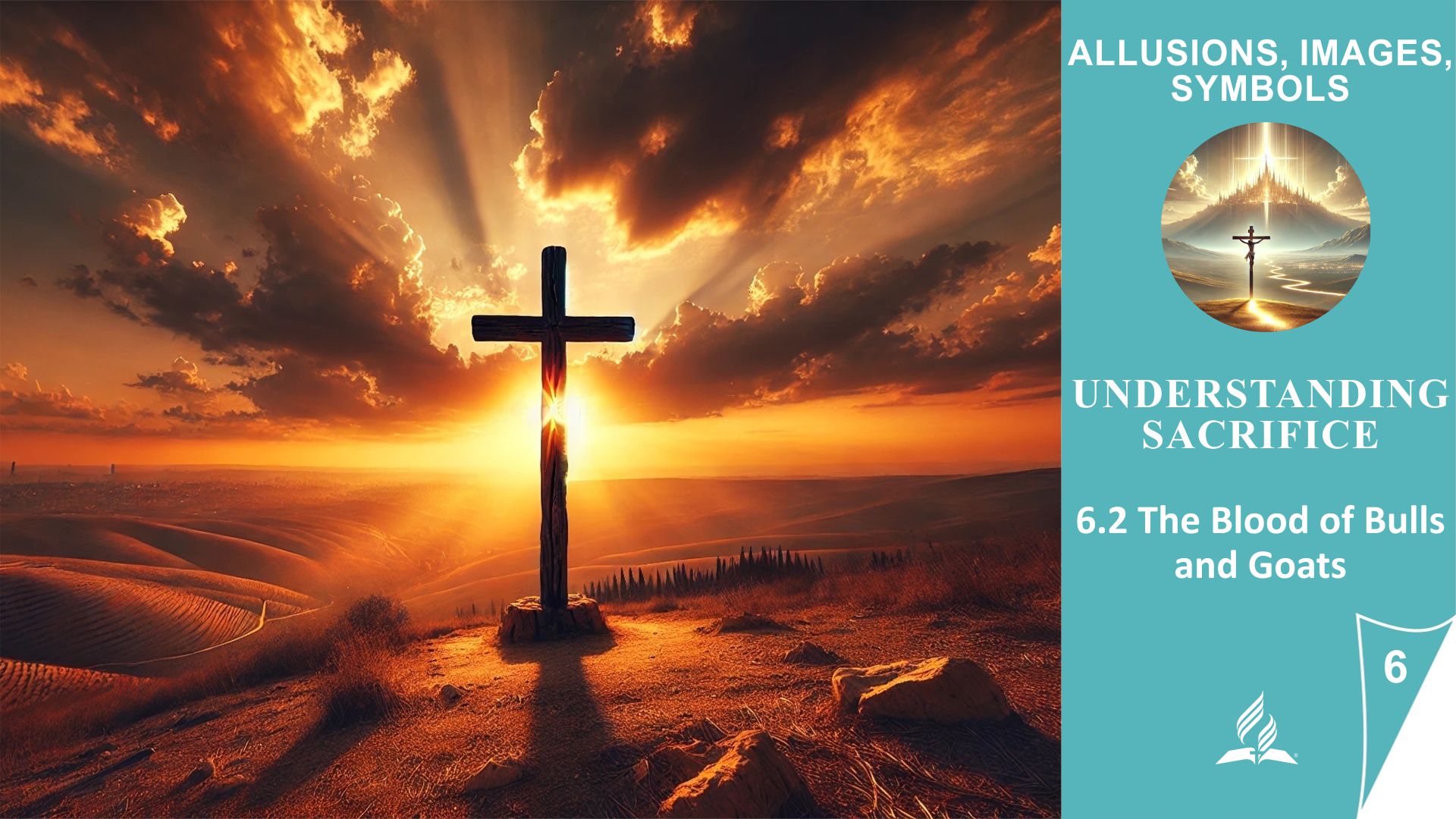


📘 Lesson 6: Understanding the Sacrifice
6.2 The Blood of Bulls and Goats
Shadow of the Cross – Why Animal Sacrifices Were Necessary
………………………………………………………………….
🟦 Introduction
The Old Testament sacrificial rituals cast a long, blood-red shadow all the way to the cross at Golgotha. Many find these rituals cruel—animal blood, altars, smoke, and death. But that is precisely the point: sin is deadly, serious, and not harmless. The sacrificial system dramatically shows how weighty guilt is and what it costs. Yet through Christ these shadows find their fulfillment. The foreshadows become reality—not in a lamb, but in the Son of God Himself.
………………………………………………………………….
📖 Bible Study
📌 Question 1: Hebrews 10:3–10 – Why were the sacrifices offered despite their ineffectiveness?
The Old Testament sacrifices could not actually take away sins—they were signs of faith, pedagogical tools from God to show His people “sin kills.” These offerings were meant constantly to remind them that a better, more perfect sacrifice would come—Jesus Christ.
They conveyed a deep sense of urgency and gravity. Whoever sacrificed an innocent animal felt that sin hurts—not only morally, but existentially. Thus each sacrifice was an act of faith—comparable to a ticket for a journey whose destination was Christ. Only through His death did that ticket become valid; only through Golgotha was the way to God opened.
📌 Question 2: What does this tell us about our attitude toward sin?
If only the death of the Son of God could atone for sin, this reveals two things: first, the dreadful depth of sin; second, the astounding height of divine love. Sin is not a harmless misstep but rebellion against the Creator. Therefore, our attitude toward sin must not be lax, tolerant, or minimizing. We are called to break with sin—not out of fear, but out of reverence for the price that was paid for us.
………………………………………………………………….
💡 Spiritual Principles
-
Only Christ can truly redeem—everything else is symbol.
-
Genuine repentance arises from recognizing the depth of guilt and grace.
-
God’s plan was from the beginning aimed at final reconciliation on the cross.
………………………………………………………………….
🧩 Application in Daily Life
-
View your life in the light of the cross. How do you treat temptation and guilt?
-
Live spiritually with the awareness that you were dearly bought (1 Corinthians 6:20).
-
Begin each day with a moment of remembrance: “You were redeemed by blood.”
………………………………………………………………….
✅ Conclusion
The cross is no mere symbolic gesture—it is the moment heaven and earth met to open the way back to God. The animal sacrifices were meaningful—but they served their purpose: pointing to Jesus. His sacrifice was unique, definitive, and perfect. Whoever recognizes this will never again treat guilt lightly, but will live in gratitude.
………………………………………………………………….
💭 Thought of the Day
“When your guilt weighs you down, don’t look at yourself, but at the Lamb. For the gaze upon Jesus is the only way to lose the burden.”
………………………………………………………………….
✍️ Illustration – “The Letter to the Stranger”
It was a rainy night in Boston. Caleb sat alone in his small apartment’s library; the candle flickered, the Bible opened before him. He was Jewish, raised in New York, yet far from his fathers’ faith. The rituals of his childhood—Yom Kippur, the Passover lamb, the Sabbath candles—had become folklore to him.
But that evening he held an old letter from his grandfather—written in Hebrew letters, from a refugee camp in Poland. “Remember the blood,” it read. “Not ours, but the Lamb’s.”
Caleb’s hands trembled. Why had his grandfather written that? He opened the Bible—to Hebrews 10. The words pierced him: “For it is impossible that the blood of bulls and goats should take away sins.”
He read on for hours. Finally, his eyes rested on one verse: “By that will we have been sanctified through the offering of the body of Jesus Christ once for all.”
Tears flowed. For the first time in his life, Caleb understood that the Passover lamb had never been only a symbol. It had been an invitation—to hope, to redemption, to love. He knelt. Not before the Law. Not before an altar of stone. But before the One who died for him. “Thank You, Jesus,” he whispered. “For the blood—Your blood, not mine.”




















